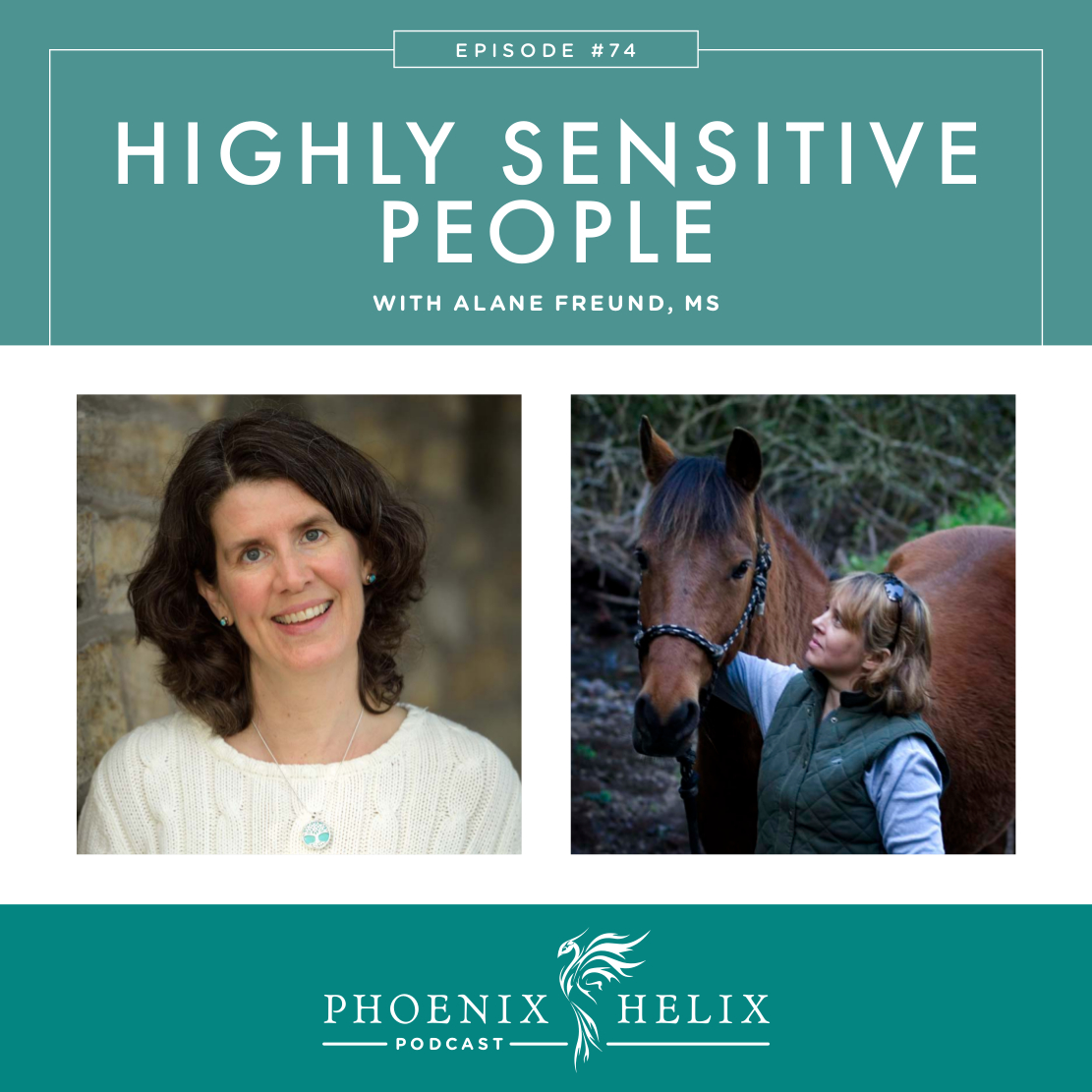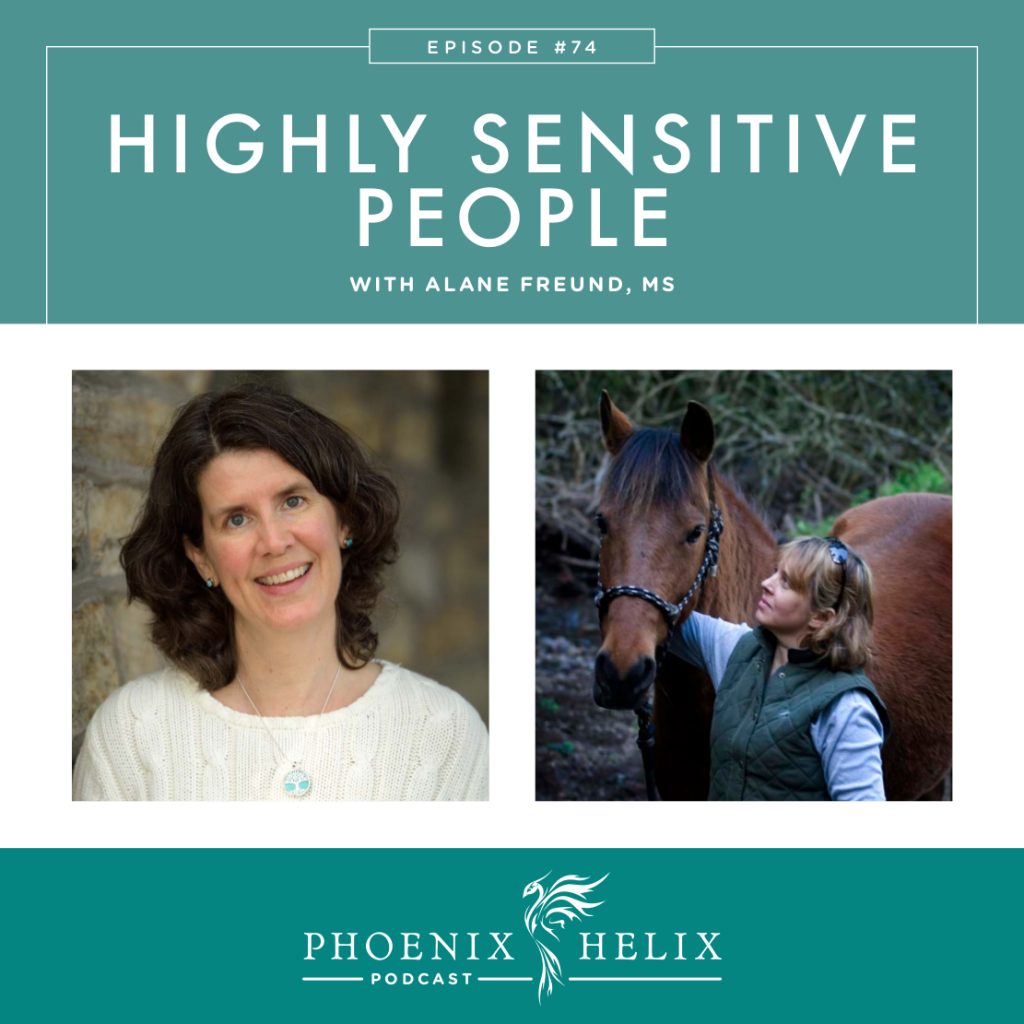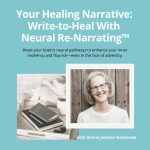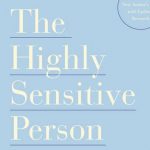What Does It Mean to Be Highly Sensitive?
Are you easily overwhelmed by bright lights and strong smells? Do you get rattled when you have a lot to do in a short amount of time? Do you make a point of avoiding violent movies and TV shows? When you were a child, did your parents or teachers see you as sensitive or shy? Then you might be a Highly Sensitive Person (HSP), along with 15-20% of the general population. Dr. Elaine Aron started researching this trait in the 1990’s, and my hunch is that the percentage is much higher among people with autoimmune disease. I first heard this term when I saw a meme on the internet called Highly Sensitive Introvert Bingo. When I got “blackout bingo”, that got me curious. (Note: introversion and HSP are two separate traits, and you can be a highly sensitive extrovert as well.) My guest today is Alane Freund, a psychotherapist who specializes in working with highly sensitive people. She’s going to teach us what this term means and if we fall into this category, how we can reap the benefits and overcome the challenges.
Listen to the Show
- Subscribe to my podcast through your favorite podcast app: iTunes, Stitcher, Google, TuneIn, Spotify, Amazon, etc.
- You can also listen to the episode right here through the player below, and if you subscribe to my newsletter you’ll get notified of future episodes.
Podcast: Play in new window | Download
Show Notes
- Intro (0:00)
- Thank You to Our Podcast Sponsor – Paleo on the Go (1:50)
- A frozen meal delivery service, they have a large menu of items for the paleo autoimmune protocol (AIP).
- Use the code PHOENIX for 10% off your first order.
- Eileen’s Updates (2:42)
- I recently had my 5 Year Healing Diet Anniversary. To celebrate, I recorded 2 videos: 5 Things I Learned in 5 Years, and A Tour of My Paleo AIP Kitchen.
- If you listened to Episode 48: Medication Decisions, you know I went on medication last year. I recently wrote a Medication Update with my results.
- On the weeks between podcasts, I write articles on my blog. If you don’t want to miss out, subscribe to my weekly newsletter.
- Meet Alane (4:11)
- Alane Freund is a psychotherapist who specializes in working with highly sensitive people.
- She also practices Equine Assisted Psychotherapy – hosting workshops as well as individual therapy sessions with the horses as co-therapists.
- She learned she was a highly sensitive person when she met Dr. Elaine Aron, the lead researcher behind this trait. Dr. Aron spotted the characteristics in Alane. They soon became friends and colleagues, and HSP became a specialty in Alane’s own therapy practice.
- What Defines a Highly Sensitive Person – HSP? (6:57)
- The Acronym DOES summarizes the characteristics of this trait: (1) Depth of Processing (2) Overstimulation (3) Emotional Reactivity & Empathy (4) Sensing the Subtle
- Resource: Take the self-test. If you answer yes to at least 50% of the questions, you are likely an HSP. There is also a separate test for children (which can be educational to take as an adult, remembering your childhood.)
- What’s the Difference Between an Introvert and an HSP? (12:00)
- There is a lot of overlap, and sometimes HSPs are mis-identified as introverts. However, it is possible to be highly sensitive and socially extroverted. Highly sensitive extroverts enjoy having lots of friends, going to parties, and meeting new people, but they are also easily overstimulated and need to balance their social activity with downtime.
- 70% of HSPs are introverts, but 30% are extroverts.
- In addition, some HSPs are high-sensation seekers. They like thrills and new activities, but they are thoughtful and carefully evaluate risk before embarking on them.
- HSP is just one part of personality. It doesn’t contain all of who we are, and there’s a wide diversity of people within the HSP community.
- What are the Benefits and Challenges of Being an HSP? (16:13)
- Benefits: In ancestral times, they were the first people to sense danger and warn their tribe. They were also the shamans, able to process and see things that others didn’t and guide the community at important moments. In modern times, they are often the environmentalists, the healers, the spiritual advisors.
- Challenges: Because HPS’s experience things at a more intense level, they are sometimes misdiagnosed with mental illness. They also have to take better care of themselves than the general population. Burning the candle at both ends isn’t an option. They need regular rest and downtime to function well. They also need to eat a healthy diet to feel their best. (These are challenges often faced by people with autoimmune disease as well.)
- Where they overlap: If HSPs have a traumatic experience or a difficult childhood, they are more likely to suffer negative consequences. However, they also respond very positively to all therapeutic interventions, including self-care. HSPs are very open to healing. This is called differential susceptibility.
- Ho Does Being Highly Sensitive Affect the Physical Body? (23:23)
- People with autoimmune disease often experience a hypersensitive body – more prone to food intolerance, chemical intolerance, scent sensitivity, stress reactions, etc. This is true for highly sensitive people as well, even ones who are not chronically ill. The good news is that the same self-care measures benefit both populations.
- Highly sensitive people are often sensitive to medication; a sub-clinical dose will often be adequate.
- When highly sensitive people are highly stressed, they are more likely to develop illness. And people who are ill are more likely to have increased sensitivity. So, there is a lot of overlap, but not all HSPs are chronically ill, and not all people with autoimmune disease are HSPs.
- Resource: Dr. Aron’s essay on fibromyalgia and highly sensitive people.
- 5 Things HSPs Need to Live a Healthy, Happy Life (29:36)
- Awareness: Know that your trait is real and an innate part of who you are.
- Acceptance: Design a life that is compatible with this trait. Self-care is essential: healthy eating, sleep, scheduling downtime, meditation, immersing yourself in nature, etc.
- Reframe Your Past: Your entire life will look different when viewed with HSP awareness. Two helpful books are Highly Sensitive Child and Strong Sensitive Boy.
- Heal From Past Traumas: Seek a therapist educated about HSPs, or if you already have a therapist you trust, share your knowledge about HSP with them. HSPs do best with gentle therapeutic techniques.
- Get to Know Other HSPs: This helps you realize you’re not alone, and there’s nothing “wrong” with having this trait. As you explore communities, both online and in real life, pay close attention to how each group makes you feel. It is possible that these groups can be overstimulating, too. Only participate in forums that make you feel better, not worse.
- Parenting a Highly Sensitive Child (33:33)
- The same things adults need, children need as well, but it manifests differently at a younger age. Many behaviors seen as negative are often caused by high sensitivity. So, honoring that need and adapting accordingly is helpful for the entire family.
- Parents need to model self-care as well. The measures you do to help your child can help you as well.
- Highly Sensitive Child Test.
- Alane’s resource page on her website.
- Resource books: Highly Sensitive Child and Strong Sensitive Boy.
- HSPs and Computer Time (37:54)
- The computer can be a very overstimulating experience for highly sensitive people. While you may be alone in your room while using it, the experience feels similar to being in a very crowded room. It is the opposite of quiet. This is especially true for email and social media, which means awareness and breaks from the computer are an important part of self-care. Intermittent 5-minute breaks make a positive difference, and an offline day is even better.
- Life Goals for HSPs – Downtime (41:09)
- Downtime is an important part of self-care for highly sensitive people. It’s where you have no interactions with others – through screens or life.
- Ideally: 1 to 2 hours downtime every day, 1 full day of downtime every week, and 1 full week of downtime every season.
- These are “no-judgment” recommendations. They are intentions to work toward achieving over a lifetime. Do the best you can in your current situation
- How to Identify Other HSPs at a Party (46:29):
- Once you know more about HSPs, you will be able to identify this trait in others. It can often lead to wonderful friendships.
- HSPs are often in the kitchen helping out, or outside on the porch taking a break from the stimulation.
- You might also find them sitting or standing alone in a quiet corner of the room, or having a quiet conversation with one other person.
- If you need a break and can’t find a quiet corner, a ritual Alane recommends is to step into the bathroom and mindfully wash your hands and rinse with cool water.
- What is Equine-Assisted Therapy (53:26)
- This is a specialty in Alane Freund’s psychotherapy practice. She offers individual and group sessions in Woodacre, CA.
- The group workshops are co-taught with HSP researcher, Dr. Aron. and are designed specifically for highly sensitive people. All of the staff are HSPs as well.
- They use the EAGALA therapeutic model. There is no horseback riding. Instead, the horses act as co-therapists who have been specifically trained for this work. Every session is co-led by a licensed mental health practitioner and a certified equine specialist. The therapeutic philosophy is that people have their own solutions within, and the horses help them find them.
- Horses are excellent lie detectors. Because they are prey animals, horses aren’t comfortable around anyone who is presenting an “outside face” to the world that doesn’t match who they are inside. They help people find their most authentic self.
- Workshops are offered year-round. You can inquire about scheduling here.
- Recommended HSP Resources
- The Highly Sensitive Person: the original book by Dr. Aron.
- The HSP Workbook: includes information on how to set up an HSP support group.
- Comfort Zone: Dr. Aron’s blog and newsletter.
- Self-Tests: developed by Dr. Aron.
- Alane Freund’s websites. Update 2020: In addition to offering 1:1 therapy & equine-assisted therapy, she also has an online membership program, offering group coaching support for HSP’s.
- Outro (59:18)
- You can connect with Alane Freund through her websites: Alane Freund and Are You Highly Sensitive.
- Eileen (your podcast host) is the author of multiple books, written to help people thrive with autoimmune disease. Learn more on the Books Page.
- If you like this podcast, follow or subscribe through your favorite podcast app. You can also subscribe to Eileen’s biweekly newsletter.
- Check out the entire archive of podcast episodes.
You May Also Be Interested In
Spreading the Word
If you like the podcast, please leave a positive review in iTunes. It would mean the world to me, and also helps others find the podcast. Here are some quick instructions using your iPhone:
- If you are already subscribed to my podcast: (1) Click the purple podcast icon. (2) At the bottom of the screen, click Library. (3) At the top of the screen, click Shows. (4) Click the Phoenix Helix podcast image. (5) Scroll down the page, and you’ll see Ratings and Reviews. Scroll down a little bit more and click on Write a Review. This will bring up the review screen. Tap 5 stars (if you love the podcast), and then click in the title box, and it will bring up the keyboard. Enter a title and short review. (6) Click Send in the upper right corner. (7) Thank you! Positive reviews give the podcast a higher search ranking in iTunes, helping people find it and letting them know it’s a quality podcast and worth their time to listen.
- If you haven’t subscribed to my podcast: (1) Click the purple podcast icon. (2) In the lower right corner, click the magnifying class. (3) Type Phoenix Helix in the search box. (4) Click the podcast cover in the Show list. (5) If you’d like to subscribe, click the + sign at the top of the screen. (6) To write a review, scroll down the page, and you’ll see Ratings and Reviews. Scroll down a little bit more and click on Write a Review. This will bring up the review screen. Tap 5 stars (if you love the podcast), and then click in the title box, and it will bring up the keyboard. Enter a title and short review. (7) Click Send in the upper right corner. (8) Thank you! Positive reviews give the podcast a higher search ranking in iTunes, helping people find it and letting them know it’s a quality podcast and worth their time to listen.










I am SO glad I listened to this specific podcast. Responding to it has had immediate benefits for me. Although I knew I was an HSP, I had failed to consider the ways in which I am overwhelmed by social media and, as a lifelong news junkie who constantly refreshes my twitter and IG feeds, I have been living in a state of elevated anxiety for the past several months, as if I am watching an inevitable train wreck yet am unable to intervene or to look away. As a result of listening to this podcast, I have thinned out my social media networks so that my incoming data is a bit less inflammatory (no pun intended). And yesterday, I completely avoided my twitter feed until evening, which resulted in a far more productive and relaxing day than I have enjoyed in months.
In addition, I appreciated the advice to reframe my past based on the knowledge that I am an HSP. My life has been remarkably influenced by (crazy) narcissists and gas-lighters and, unlike many of my relatives, I have chosen to cut ties with such people since they have already taken too much from me. I had second-guessed myself for these choices, wondering whether I am being too harsh or unforgiving, even when I know the consequences of maintaining such toxic, one-sided relationships. This podcast affirmed my choices and helped me reframe this as self care rather than selfishness. It also helped me consider the ways in which I had played a stabilizing role in the midst of a lot of past chaos.
I could go on and on, but I’ll stop here. However, if listening to this podcast 48 hours ago had such wonderful effects on me, imagine what will happen if I listen to it again. As always, Elaine, thanks for the tireless work you invest on behalf of the AI community. You are a treasure.
Deborah, thank you so much for sharing! It gave me goose bumps to see the changes you’re already implementing for a more peaceful life. I also admire you for cutting ties with toxic people. It takes courage to make that choice, but sometimes it really is necessary. I hope your life now is filled with people who value what you bring to the world, and lift you up rather than tear you down. Gentle hugs to you.
Thank you, Eileen! This podcast was very informative. It explained so much of who I am–and who YOU are. I so appreciate all your work. You rock!
You’re so welcome, K! Highly Sensitive Peeps Unite.